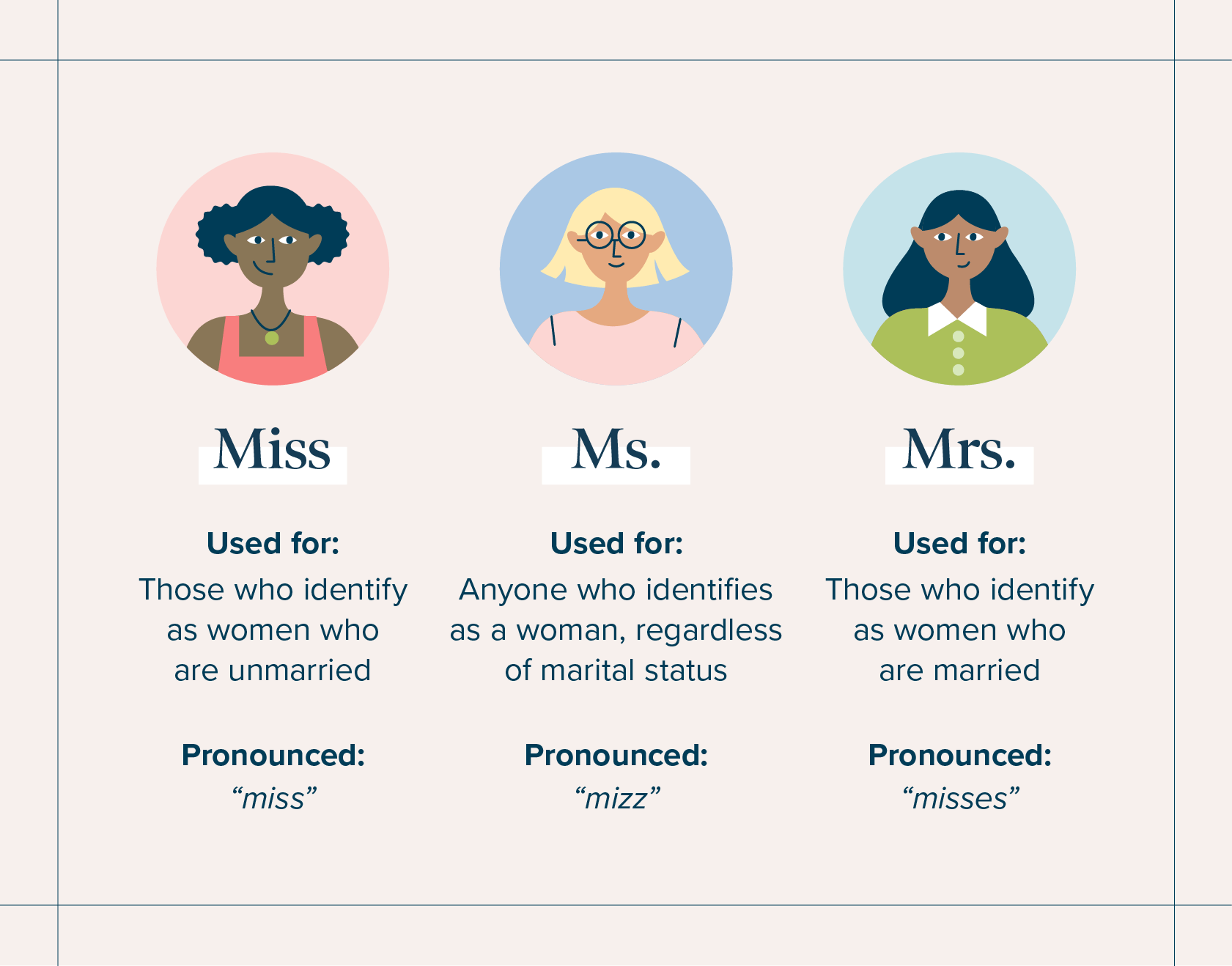Is Mrs. Married? Understanding The Concept Of Marriage And Mrs. Title

Marriage is a significant milestone in many people's lives, and the title “Mrs.” often raises questions about a woman's marital status. This article aims to explore what it means to be a "Mrs.," the implications of this title, and the cultural significance surrounding it. Whether you're curious about the title's history or how it impacts social interactions today, you’ll find valuable insights here.
The term "Mrs." has evolved over time, and its usage can vary from one culture to another. In many Western cultures, it denotes a woman who is married, often to indicate her husband's last name. However, societal changes and the rise of gender equality have prompted discussions about the relevance of this title in contemporary society. Are we still bound by traditional views, or is it time to redefine how we perceive marital status through titles?
In this comprehensive article, we will delve into the different aspects of marriage, explore the meaning behind the title “Mrs.,” and answer the question: Is Mrs. married? By understanding these elements, we can appreciate the complexities of marital status and its representation in society.
Table of Contents
Understanding Marriage
Marriage is a legally recognized union between individuals that is often associated with emotional and social commitments. Traditionally, it has involved various cultural, legal, and religious aspects, which can differ greatly from one society to another. Here are some key points to consider:
- Legal Aspect: Marriage typically requires a license and involves legal rights and responsibilities.
- Emotional Commitment: It is often seen as a bond of love and companionship.
- Cultural Practices: Different cultures have unique rituals and customs that accompany marriage ceremonies.
The Title "Mrs."
The title "Mrs." has its roots in the word "mistress" and is used to refer to a married woman. Understanding its usage and implications is crucial in comprehending how marital status is communicated through titles:
Historical Background
Historically, "Mrs." indicated that a woman was married and was often followed by her husband's last name. This practice reflected the societal norms of the times when women were often seen as extensions of their husbands.
Modern Usage
In contemporary society, the use of "Mrs." can be a matter of personal choice. Some women choose to retain their maiden names after marriage, leading to discussions about the relevance of the title.
Cultural Significance of "Mrs."
The title "Mrs." holds different meanings across various cultures:
- Western Cultures: In many Western societies, "Mrs." is a common title for married women, symbolizing their marital status.
- Eastern Cultures: In some Eastern cultures, titles may vary, and the significance attached to marital status may differ.
Biography of "Mrs."
While "Mrs." does not refer to a specific individual, it can be informative to consider the general attributes and expectations of a married woman:
| Attribute | Description |
|---|---|
| Name | Indicates marital status |
| Societal Expectations | Often involves traditional roles in family and society |
| Legal Rights | Entitled to certain legal rights and responsibilities |
Data on Marriage Statistics
Understanding the current landscape of marriage is essential for contextualizing the title "Mrs." Here are some relevant statistics:
- As of 2021, the average age of first marriage in the U.S. is approximately 30 for men and 28 for women.
- About 50% of marriages in the U.S. end in divorce, leading to questions about the relevance and permanence of the title "Mrs."
- Globally, marriage rates have been declining in recent years, with many opting for cohabitation instead.
Long-term Relationships and Titles
As societal norms evolve, many individuals are redefining what marriage means to them:
Alternative Titles
Some couples prefer to use titles that reflect their relationship without adhering to traditional norms. For instance, terms like "partner" or "significant other" are gaining popularity.
Impact on Identity
For many women, the title "Mrs." can impact their identity and how they are perceived in society. This raises questions about whether titles should continue to reflect marital status.
Contemporary Views on Marriage
The contemporary view of marriage is shifting, with more individuals exploring alternative lifestyles and relationships:
- Marriage is becoming less of a societal expectation and more of a personal choice.
- Many women are choosing to keep their maiden names or use "Ms." to avoid the implications of marital status.
Conclusion
In summary, the title "Mrs." carries significant weight and implications regarding marital status. While it traditionally indicates that a woman is married, contemporary views are challenging its relevance. Understanding the complexities of marriage and the title "Mrs." allows for more informed discussions about societal roles and expectations.
We encourage readers to share their thoughts on the topic or engage in further discussions in the comments below. If you found this article informative, consider sharing it with others or exploring more articles on our site.
Thank you for reading, and we hope to see you again soon for more insightful content!
You Also Like
How Old Is Aaron Rodgers? A Comprehensive Look At His Life And CareerDiscovering The Delicious Chick-fil-A Menu: A Comprehensive Guide
Anne Archer: A Deep Dive Into The Life And Career Of The Acclaimed Actress
Understanding Nicole Zzz Age: A Comprehensive Look At Her Life And Career
David Keith McCallum Jr: A Comprehensive Biography Of The Iconic Actor
Article Recommendations
ncG1vNJzZmiZlKK2r3rBqKmdnaKhrq%2Bw0mespGaTpLpwwdKnnLCrY2S2tHnMq6pmpZGnv6qxw2efraWc